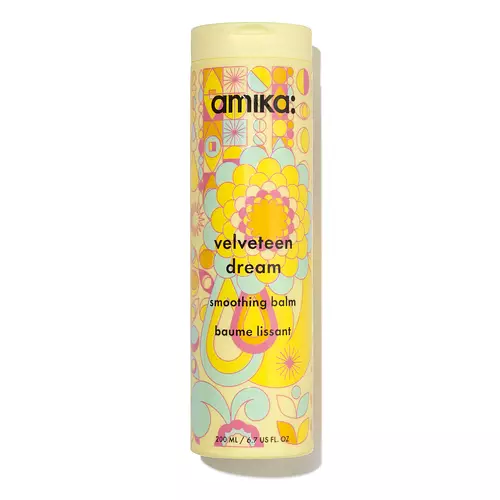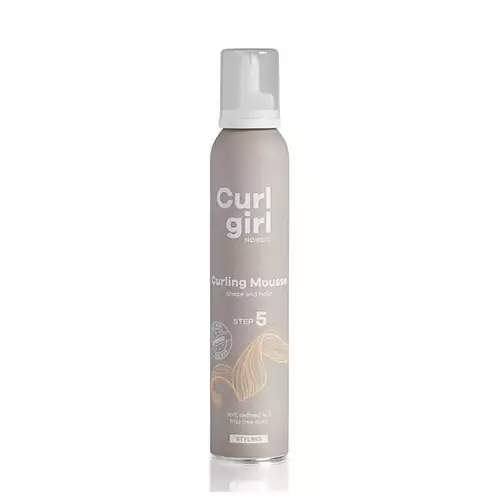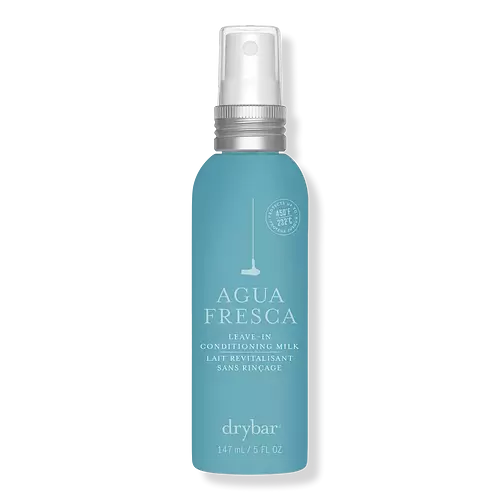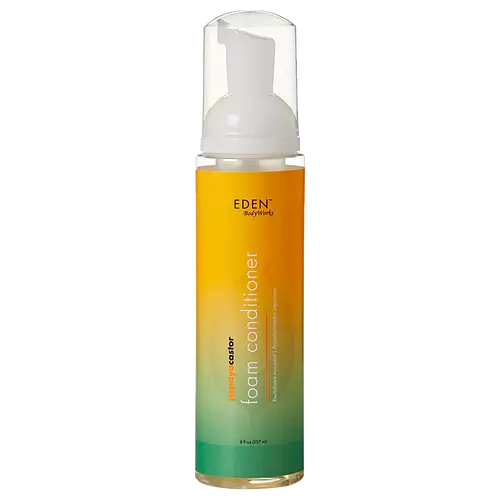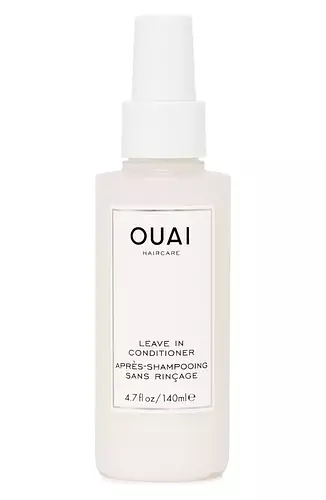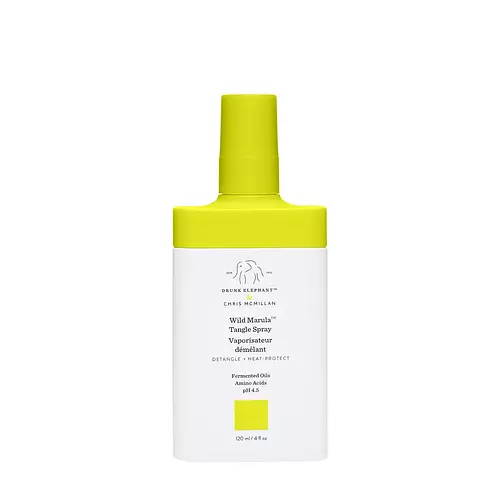
Curl Girl Nordic Step 4 Leave In Conditioner Foam Ingredients Explained
Published on June 15, 2023 Submitted by grwmmarta
Overview
What it is
Leave-in conditioner with 17 ingredients
Cool Features
It is vegan, cruelty-free, and reef safe
Suited For
It has ingredients that are good for dry skin and brightening skin
Free From
It doesn't contain any harsh alcohols, common allergens, parabens, silicones or sulfates
Fun facts
Curl Girl Nordic is from Denmark.
We independently verify ingredients and our claims are backed by peer-reviewed research. Does this product need an update? Let us know.
Leave-in conditioner with 17 ingredients
Quick info
You should know
Benefits
This product contains 2 ingredients that may have this attribute:
This product contains 1 ingredient that may have this attribute:
Concerns
This product contains 1 ingredient that may have this attribute:
This product contains 1 ingredient that may have this attribute:
This product contains 1 ingredient that may have this attribute:
Ingredients 17
Water. It's the most common cosmetic ingredient of all. You'll usually see it at the top of ingredient lists, meaning that it makes up the largest part of the product.
Myristyl Alcohol is type of fatty alcohol. It is a white, waxy solid and insoluble in water.
This ingredient is a preservative, antimicrobial, and emulsifier. It is often used in cosmetics for its ability to cleanse, condition, and reduce static.
Coco-Glucoside is a surfactant, or a cleansing ingredient. It is made from glucose and coconut oil.
Glycerin is already naturally found in your skin. It helps moisturize and protect your skin.
Laureth-4 is created by reacting ethylene oxide with Lauryl Alcohol. It is a surfactant and emulsifier.
Phenoxyethanol is a preservative that has germicide, antimicrobial, and aromatic properties. Studies show that phenoxyethanol can prevent germ and microbial growth. By itself, it has a scent that is similar to that of a rose.
Parfum is a catch-all term for an ingredient or more that is used to give aroma to products. Parfum, or fragrance, can be a blend of hundreds of chemicals or plant oils. This means every product with "fragrance" or "Parfum" in the ingredients list is a different mixture.
Ethylhexylglycerin (we can't pronounce this either) is commonly used as a preservative and skin softener. It is derived from glyceryl.
Argania Spinosa Kernel Oil is derived from the kernels of the argania spinosa tree. You may know it as argan oil.
Oryza Sativa Starch is an absorbent and used to mattify the skin. It is a natural carbohydrate and the main component of rice. A more common name for this ingredient is 'rice starch'.
Citric Acid is an AHA derived from citrus fruits (think oranges, lemons, and limes!).
Ingredient Ratings
Based on the number of likes and dislikes each ingredient has received.
Ingredients Explained
Water. It's the most common cosmetic ingredient of all. You'll usually see it at the top of ingredient lists, meaning that it makes up the largest part of the product.
So why is it so popular? Water most often acts as a solvent - this means that it helps dissolve other ingredients into the formulation.
You'll also recognize water as that liquid we all need to stay alive. Talk about multi-purpose! If you see this, drink a glass of water. Stay hydrated!
Learn more about WaterWe don't have a description for Butane.
Myristyl Alcohol is type of fatty alcohol. It is a white, waxy solid and insoluble in water.
As an emollient, it hydrates the skin by trapping moisture in.
Fatty Alcohols are most often used as an emollient or to thicken a product. They are usually derived from natural fats and oils and therefore do not have the same drying or irritating effect as solvent alcohols.
Learn more about Myristyl AlcoholWe don't have a description for Isobutane.
We don't have a description for Propane.
This ingredient is a preservative, antimicrobial, and emulsifier. It is often used in cosmetics for its ability to cleanse, condition, and reduce static.
Cetrimonium chloride is a quaternary ammonium salt, meaning it has a water-soluble structure.
Coco-Glucoside is a surfactant, or a cleansing ingredient. It is made from glucose and coconut oil.
Surfactants help gather dirt, oil, and other pollutants from your skin to be rinsed away. Coco-Glucoside is considered gentle and non-comedogenic.
This ingredient is a known skin-irritant.
Learn more about Coco-GlucosideGlycerin is already naturally found in your skin. It helps moisturize and protect your skin.
A study from 2016 found glycerin to be more effective as a humectant than AHAs and hyaluronic acid.
As a humectant, it helps the skin stay hydrated by pulling moisture to your skin. The low molecular weight of glycerin allows it to pull moisture into the deeper layers of your skin.
Hydrated skin improves your skin barrier; Your skin barrier helps protect against irritants and bacteria.
Glycerin has also been found to have antimicrobial and antiviral properties. Due to these properties, glycerin is often used in wound and burn treatments.
In cosmetics, glycerin is usually derived from plants such as soybean or palm. However, it can also be sourced from animals, such as tallow or animal fat.
This ingredient is organic, colorless, odorless, and non-toxic.
Glycerin is the name for this ingredient in American English. British English uses Glycerol/Glycerine.
Learn more about GlycerinLaureth-4 is created by reacting ethylene oxide with Lauryl Alcohol. It is a surfactant and emulsifier.
Surfactants reduce the surface tension of ingredients so they can mix better. Emulsifiers prevent ingredients such as oil and water from separating.
Phenoxyethanol is a preservative that has germicide, antimicrobial, and aromatic properties. Studies show that phenoxyethanol can prevent germ and microbial growth. By itself, it has a scent that is similar to that of a rose.
It's often used in formulations along with Caprylyl Glycol to preserve the shelf life of products.
Parfum is a catch-all term for an ingredient or more that is used to give aroma to products. Parfum, or fragrance, can be a blend of hundreds of chemicals or plant oils. This means every product with "fragrance" or "Parfum" in the ingredients list is a different mixture.
In the US, the alternative name for parfum is 'fragrance'. The term 'fragrance' is not regulated in many countries. In many cases, it is up to the brand to define this term.
For instance, many brands choose to label themselves as "fragrance-free" because they are not using synthetic fragrances. However, their products may still contain ingredients such as essential oils that are considered a fragrance. One example is Calendula flower extract. Essential oil ingredients still impart a scent or 'fragrance'.
Depending on the blend, it can cause allergies and sensitivities on the skin. Some ingredients that are known EU allergens include linalool and citronellol.
Products use parfum often to give products a scent or cover up smells of different ingredients.
The bottom line is: not all fragrances/parfum/ingredients are created equally. If you are worried about fragrances, we recommend taking a closer look at an ingredient. And of course, we always recommend speaking with a professional.
Learn more about ParfumThis ingredient is derived from guar gum.
It is a conditioning ingredient, meaning it helps soften skin and hair.
We don't have a description for Polyglyceryl-3 PCA.
Ethylhexylglycerin (we can't pronounce this either) is commonly used as a preservative and skin softener. It is derived from glyceryl.
You might see Ethylhexylglycerin often paired with other preservatives such as phenoxyethanol. Ethylhexylglycerin has been found to increase the effectiveness of these other preservatives.
Argania Spinosa Kernel Oil is derived from the kernels of the argania spinosa tree. You may know it as argan oil.
Argan Oil is an antioxidant, hydrating, and soothing ingredient.
Studies have shown argan oil can help fight again radical damage from the sun. This makes it effective at preventing hyperpigmentation.
Large amounts of vitamin E found in argan oil helps the skin retain water. Argan oil also contains fatty acids such as linoleic acid, oleic acid, and palmitic acid. It is also a good source of lipids.
Another benefit of argan oil is skin-soothing. It can help reduce inflammation-related skin symptoms.
Argan Oil is effective at regulating sebum production in pores. This can make it effective at treating hormonal acne.
Traditionally, argan oil was used for its antibacterial and antifungal properties. However, argan oil contains fatty acids that may make it not fungal-acne safe.
Argan Trees are native to Morocco.
Learn more about Argania Spinosa Kernel OilOryza Sativa Starch is an absorbent and used to mattify the skin. It is a natural carbohydrate and the main component of rice. A more common name for this ingredient is 'rice starch'.
Rice starch is created by steeping broken grains in a caustic soda.
Rice extract has many skin benefits. Read more about rice extract here.
Learn more about Oryza Sativa StarchCitric Acid is an AHA derived from citrus fruits (think oranges, lemons, and limes!).
If you spot Citric Acid near the end of an ingredient list, it's likely there as a pH adjuster rather than an active ingredient.
As an AHA, Citric Acid removes the top layer of skin cells from the newer layer of skin underneath. This helps skin to remove dark spots and look more even.
Read more about some other popular AHA's here:
Learn more about Citric AcidCompared With
Here are some products that it's often compared with
More Curl Girl Nordic Products
See all Curl Girl Nordic productsMore Leave-in Conditioners
See all leave-in conditionersWe're dedicated to providing you with the most up-to-date and science-backed ingredient info out there.
The data we've presented on this page has been verified by a member of the SkinSort Team.
Read more about us

